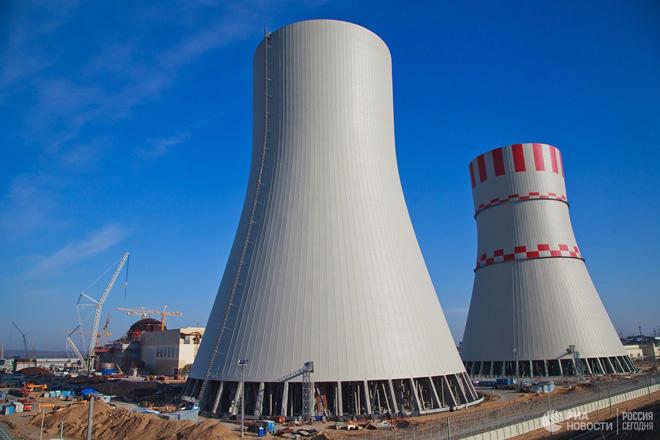
Central Asia's Main Driver Of Resorting To Peaceful Nuclear Energy
BAKU, Azerbaijan, September 2. Central Asia, forced to gradually reduce the usage of fossil energy resources, is increasingly inclined towards nuclear energy production, Trend reports.
Electricity consumption in the Central Asian countries is annually growing, thereat the countries have to look for additional energy sources due to the obsolete equipment at thermal and hydroelectric power plants. In January 2022, a large-scale overload of electricity networks led to a power outage in the regions of Kazakhstan, Uzbekistan and almost all of Kyrgyzstan, affecting over 40 million people.
Kazakhstan, where the emergency occurred, expressed serious concern about the incident, particularly about the country's energy security. The Kazakh authorities have repeatedly spoken out for the development of additional electricity sources.
Meanwhile, the desire to achieve carbon neutrality by 2060 encourages the country to gradually reduce the share of coal and look for new non-carbon options, due to which nuclear energy has become a major force in the Kazakh government's plans. According to President of the Republic Kassym-Jomart Tokayev, the nuclear power plant will contribute to the energy security of the country.
Kazakhstan eyes constructing a nuclear power plant by 2035, whereas the nuclear power generation by this time should account for 12 percent, which will not replace the share of coal in the energy supply that is to be reduced from 70 to 40 percent. It's going to be filled with renewable energy sources.
Kazakhstan's significant natural potential for the development of nuclear energy is also of utmost importance for the launch of nuclear power plants, it ranks first in uranium deposits in the world and second in production. According to the country's national operator NAC Kazatomprom JSC, 21,800 tons of uranium were mined in Kazakhstan in 2021, while in 2022 its production was supposed to reach 22,300 tons.
Another Central Asian country that is closest to the launch of a nuclear power plant in Uzbekistan.
The construction of the nuclear power plant is scheduled to start in 2023, whereas its commissioning is planned for 2033. The nuclear power plant will generate 15 to 30 percent of the country's electricity. Just like Kazakhstan, Uzbekistan has significant uranium deposits. According to the World Nuclear Association, 3,500 tons of uranium were mined in the country in 2020.
Whereas Kyrgyzstan has small uranium reserves, the country has banned its development and production since 2019. However, already in 2022, the law was proposed to be abolished, whilst Kyrgyzstan and Russia agreed to cooperate in the construction of small nuclear power stations.
Tajikistan 2017 signed a cooperation agreement with Russia on the use of atomic energy for peaceful purposes. The agreement provides for the possible use of decommissioned uranium mining and processing equipment. But, the country is currently more concerned about getting rid of the former Soviet uranium tailing dumps, rather than developing new ones.
Turkmenistan is presently not developing projects for the production of nuclear energy.
Even though the Central Asian countries and their investment partners see practical benefits in the development of nuclear energy and are ready to invest in new projects, it is often criticized by both politicians and the public. The biggest concern is radiation, the risk of accidents, especially in seismically active areas, and the problem of storing non-recyclable radioactive waste.
Moreover, the construction of a nuclear power plant is a long-term project with many associated risks, which takes an average of six to eight years. A similar process in Uzbekistan is supposed to be completed in ten years, while in Kazakhstan – it is in six years. And if all the necessary documents have already been signed in Uzbekistan, the place and date for the start of construction have been chosen, and Kazakhstan is still at the stage of developing the NPP construction plan.
In a favorable scenario, nuclear power plants in Uzbekistan and Kazakhstan will appear only by the middle of the next decade. If the authorities of the countries and their foreign partners see the practical benefits of nuclear energy, the success of nuclear power plants will entail more and more investments, and, perhaps, other countries of Central Asia will reconsider their attitude towards peaceful nuclear energy.
EastWestStream columnist: Alena Pavlenko
Follow the author on Twitter: @Pv_Alyona

Legal Disclaimer:
MENAFN provides the
information “as is” without warranty of any kind. We do not accept
any responsibility or liability for the accuracy, content, images,
videos, licenses, completeness, legality, or reliability of the information
contained in this article. If you have any complaints or copyright
issues related to this article, kindly contact the provider above.


















Comments
No comment